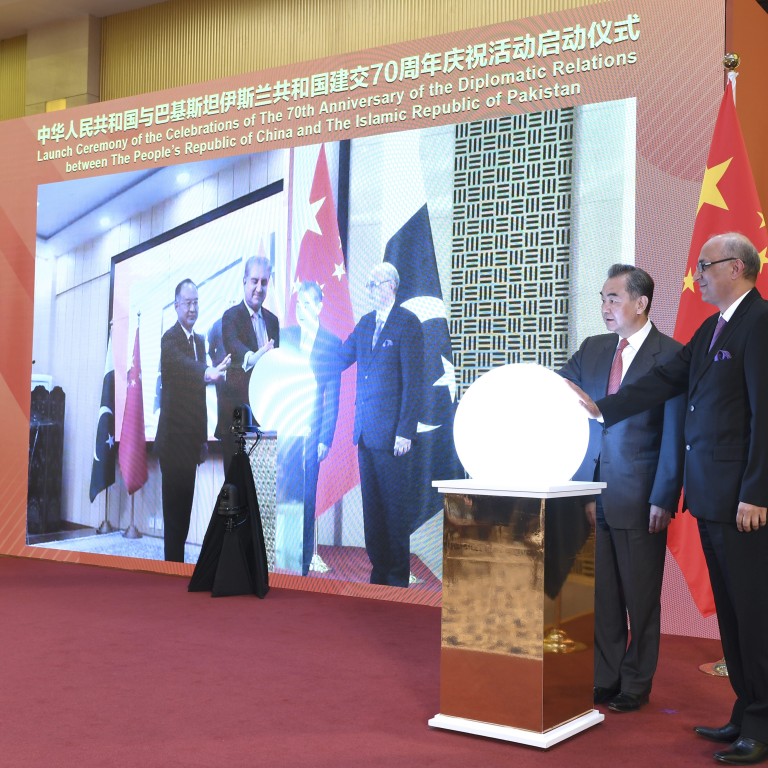
China, Pakistan reiterate commitment to infrastructure development programme
- Two sides should ‘firmly promote the construction of the China-Pakistan Economic Corridor’, Chinese Foreign Minister Wang Yi tells his Pakistani counterpart, Makhdoom Shah Mahmood Qureshi
- Men discussed multibillion-dollar plan during video chat to mark 70 years of diplomatic relations between Beijing and Islamabad
“We must persist in creating a mutually beneficial and win-win situation,” the foreign ministry quoted Wang as saying during a video chat with his Pakistani counterpart, Makhdoom Shah Mahmood Qureshi. The call was made to mark the 70th anniversary of the countries establishing diplomatic relations.
Explainer: China’s super link to Gwadar Port
Though often valued at US$62 billion, only about US$25 billion worth of CPEC projects have so far been developed.
Wang said that 46 of 70 planned CPEC projects had been completed, with a combined investment of US$25.4 billion. The scheme had achieved “satisfactory results” and created job opportunities in Pakistan, he said.
Qureshi said Pakistan fully supported China’s belt and road plan and described the CPEC as a prime example of its “high-quality development”, according to a report by Chinese Communist Party mouthpiece People’s Daily.

Despite the foreign ministers’ upbeat comments, critics have accused the CPEC of being a debt trap for Islamabad, while its development through the disputed region of Kashmir has raised concerns in India.
Pakistani Prime Minister Imran Khan added to those geopolitical worries during a visit to Colombolast week when he invited Sri Lanka to join the CPEC.
At a virtual summit held at the end of last year and attended by Xi and Khan, Indian Prime Minister Narendra Modi stressed the need to respect the sovereignty of nations while pursuing connectivity initiatives in the region.
China-Pakistan relations: security fence at Gwadar port creates new tensions
The CPEC has strategic significance for China as it provides an alternative route for importing oil and gas from the Middle East. But Delhi is worried that Gwadar Port – a CPEC project on Pakistan’s Arabian Sea coast – will be used as a base for the Chinese navy.
Wang said China and Pakistan should expand their strategic partnership and uphold multilateralism.
“We should firmly hold that all countries have equal status regardless of their size while opposing hegemonism and power politics,” he said.
“We should deepen political mutual trust. Both sides should continue to firmly support each other on issues involving each other‘s core interests and major concerns.”

